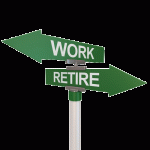Our summer interns are back! Two great undergraduates spent part of the summer interviewing older  people about their advice for living. Here’s the post from Margo Rieman, a junior attending Tulane University in New Orleans, Louisiana, majoring in Management and Psychology and minoring in French. While conducting her interview, Margo learned the importance of thinking wisely, working hard and saving your money. Here’s her report:
people about their advice for living. Here’s the post from Margo Rieman, a junior attending Tulane University in New Orleans, Louisiana, majoring in Management and Psychology and minoring in French. While conducting her interview, Margo learned the importance of thinking wisely, working hard and saving your money. Here’s her report:
When one is young, it can be difficult to make smart decisions and spend your time wisely because understanding and effectively anticipating the long-term costs and benefits associated with a given choice can be challenging. Many people rely on past experiences and invested costs when making life decisions. However, ignoring other factors – particularly the future – may result in a short-sighted perspective.
Jeremiah, a former World War II veteran and now a 99-year old New Yorker, had some wisdom to offer on this topic. Jeremiah made it clear that there are certain things in life that should be prioritized when making major life decisions, despite your immediate wants and needs. Jeremiah recants his experiences below and emphasizes the importance of thinking wisely, going to college, and saving your money.
I was a veteran in World War II. I could have gone to college on the G.I.’s Bill of Rights but I wanted to live, more or less. If you grew up in the 30’s you didn’t have the same opportunities as you do today because of the lack of money. So once you’re in service, and you accumulate some money, after you get discharged you have this money supposedly – what they call, “on the books” – coming to you, so you want to go out and buy a car, which is a mistake. I should have used it to go to college. I wasn’t a gambler or anything like that so I kind of accumulated quite a bit of money.
That perspective, the war, changed me, you know. Plus I had a high school education, and I wasn’t real smart, in fact I was below level but I could have went to college. I didn’t want to, I wanted to have a good time. Well, now I’m pushing 100. I never saved any of my money, and I’m broke. When you see on the television that you need hundreds of thousands of dollars for retirement, they’re not far off.
Jeremiah concluded:
Work hard, save your money. You’re always going to have stressful experiences, but if you know what you’re doing, you can do it. Be conservative. Be very dedicated to what you’re doing. You gotta have fun but it should be 20 percent of your efforts. The thing is if you do it when you’re young, you’ll be better off when you get older.
Jeremiah’s advice forewarned me of the importance of saving while I’m young and to work hard in all my endeavors. He gave me confidence that I will succeed if I am knowledgeable and experienced in the work I am pursuing.









